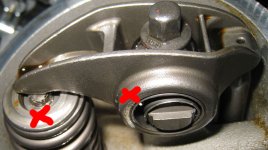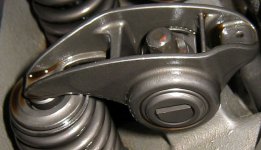teamzr1
Supporting vendor
Over the years, some owners found their C6 Z06 LS7s to have prematurely worn valve guides.
The valve guide issue has been known for some time now, and even GM has acknowledged the issue after tracing the problem to one of its suppliers.
That hasn’t stopped some Corvette owners from finding relief in the Courts.
Last week, the Ninth Circuit Court of Appeals ruled against a group of 17 Corvette owners who alleged General Motors had defects in the 2006-2013 Corvette Z06 engines.
The plaintiffs had filed an appeal to the Central District Court of California, who had previously granted summary judgment in the case to General Motors LLC.
The owners say they purchased Chevrolet Corvette Z06s, and they allege that valve guides in the vehicle’s LS7 engines contained design and manufacturing defects that caused damages.
In the appeal, the court said the Summary Judgment ruling for General Motors was appropriate because the Plaintiffs failed to produce admissible evidence that their vehicles actually contained the alleged valve guide defects, as their expert declarations were filed past the required deadline according to the three-judge panel who heard the appeal.
The valve guide issue has been known for some time now, and even GM has acknowledged the issue after tracing the problem to one of its suppliers.
That hasn’t stopped some Corvette owners from finding relief in the Courts.
Last week, the Ninth Circuit Court of Appeals ruled against a group of 17 Corvette owners who alleged General Motors had defects in the 2006-2013 Corvette Z06 engines.
The plaintiffs had filed an appeal to the Central District Court of California, who had previously granted summary judgment in the case to General Motors LLC.
The owners say they purchased Chevrolet Corvette Z06s, and they allege that valve guides in the vehicle’s LS7 engines contained design and manufacturing defects that caused damages.
In the appeal, the court said the Summary Judgment ruling for General Motors was appropriate because the Plaintiffs failed to produce admissible evidence that their vehicles actually contained the alleged valve guide defects, as their expert declarations were filed past the required deadline according to the three-judge panel who heard the appeal.


